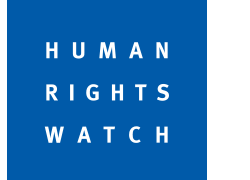The Libyan government and General National Congress (GNC) should take urgent steps to begin an ambitious program of legislative reform, Human Rights Watch said. These reforms should entrench freedom of speech, assembly, and expression; strengthen women’s rights; and outlaw discrimination against minorities in accordance with Libya’s international rights commitments. The process of drafting a new constitution, a key undertaking in 2013, should be transparent and inclusive, and take full account of the views of women and minority groups, such as the Amazigh, Tebu, and Tuareg.
The decision of Libya’s Supreme Court in June to quash Law 37, passed a month earlier, as unconstitutional, was a positive step, Human Rights Watch said. The law had criminalized some forms of political speech, including speech that “glorifies the tyrant [Muammar Gaddafi].”
The work of Libya’s Integrity and Patriotism Commission was problematic due to its overly broad and vague criteria, Human Rights Watch said. The commission, which determines who may serve as a government official or hold public office, excluded dozens of people from various posts, including 11 elected members of the GNC, on the basis of poorly defined connections with the Gaddafi government and family, although some of these people are challenging the decision in court.
Decisions to exclude people from public office and senior posts should be based on clearly defined and limited criteria, and anyone affected should get a fair hearing to challenge the evidence used against them, Human Rights Watch said.
Members of the GNC contemplating a possible new “political isolation law” to regulate who can hold public office and senior posts should take their time to ensure the law meets international standards and fits into Libya’s larger process of transitional justice, Human Rights Watch said.
Human Rights Watch also expressed concern about NATO’s continued unwillingness to acknowledge, let alone investigate, dozens of civilian deaths from its airstrikes in 2011. Human Rights Watch documented 72 such deaths, including 20 women and 24 children.
Libya’s friends and allies, not least the countries that participated in the 2011 NATO campaign against Gaddafi, share a heavy responsibility to support Libya’s democratic transition, including the rapid construction of a fully functioning and fair judicial system, Human Rights Watch said.
“All the states that want to support Libya shouldn’t assume that democracy will come because Gaddafi is gone,” Stork said. “On the contrary, now is the difficult work to help build proper institutions, accountable police, and the rule of law.”
The full HRW report can be downloaded here, while the response from the Libyan Minister for Justice can be seen here.





